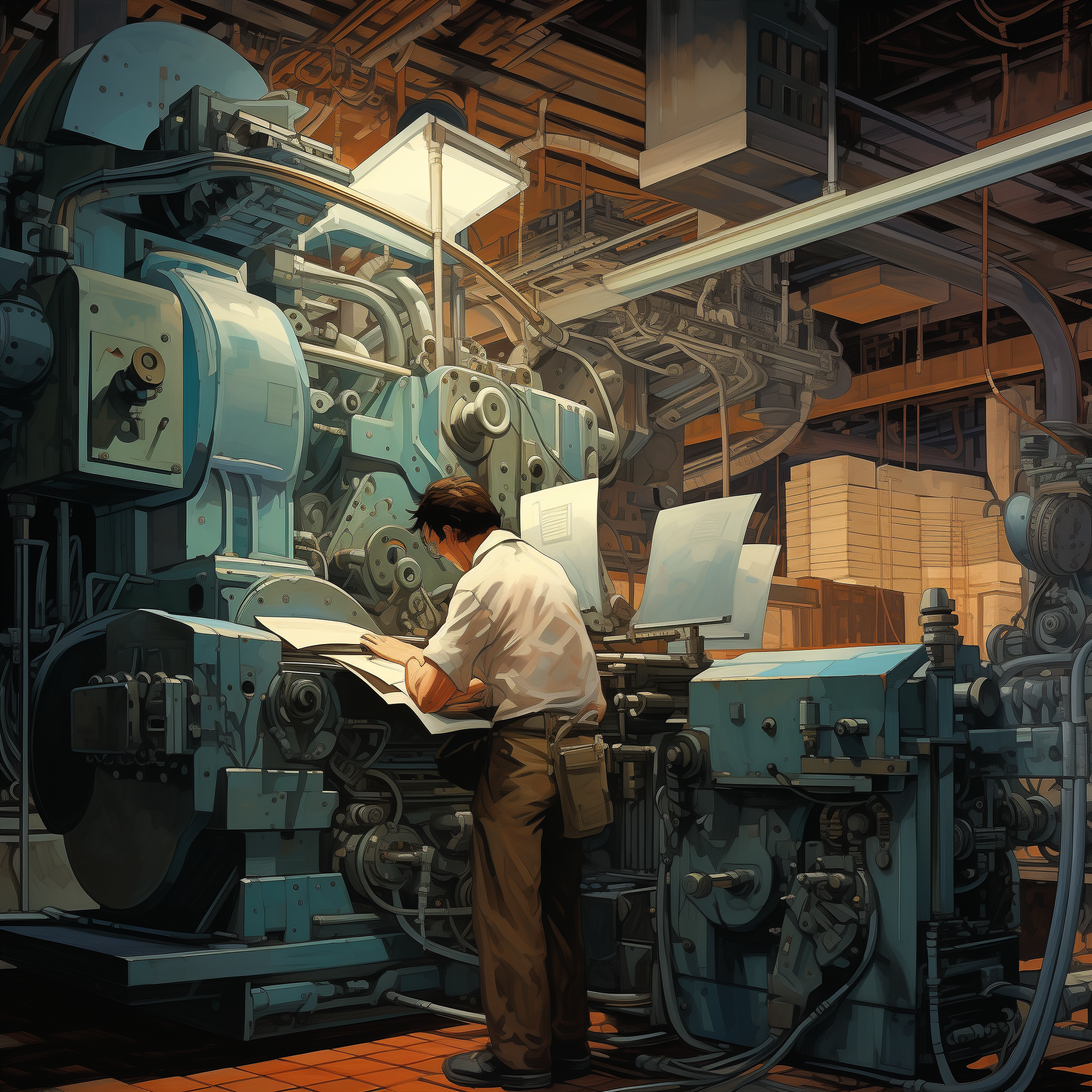Crossing The River
In a different time and place than our own, automation changes a man's life.

He casts a long shadow as he strides across the railroad bridge’s uneven wooden planks, a black lunch pail swinging from his right hand holds the lunch his wife has dutifully prepared and packed. The river rushes thirty feet below him but he does not hear her waters or smell the sweet spring air swirling around his head, into his nostrils. His singular focus is arriving on time, before the mill’s whistle blows, signaling the start of his mid-day shift at the paper mill.
It's 1948; he’s 33 and the father of four children. He and his family live on the second-floor of a tenement building owned by his employer; the monthly rent deducted from his meager paycheck.
As a second-generation immigrant from Quebec, Canada, he’s forgotten his ancestral roots, his parents’ generation having abdicated their wholesome lives in the late 19th century for the potential of a better life, the promise of good jobs in New England’s industrialized cities, offering cash money in return for labor.
His ancestors were farmers who pressed their feet into the spring’s sodden earth. Holding the wooden handles of a single-blade plow, they followed their work horses as they pulled the blade through the sod, preparing the soil for planting the season’s crops. They were aware of the weather, the slightest shift in the wind, listened to the birds alerting them of seasonal shifts, and experienced the cycle of life and death in wildlife, domestic animals, and in vegetation they grew to sustain themselves.
He works on a paper-making machine, its stainless-steel rollers towering twenty feet above his slender six-foot body as they whirl at high speed, pinching the wood pulp between their heavily polished surfaces. The danger of being caught between the high-speed rollers when setting up the next paper run would have startled his ancestors whose daily risks were more natural—being trampled by a horse, or crushed by a large oak being felled for the winter’s fuel. These risks were natural, occurring in nature, a part of the natural order of life on Earth.
He is surrounded by the ever-present scent of wet wood pulp hanging in the air, and the piercing sound of the high-pitched whirring of the paper machine’s rollers that blocked the potential for other sensory awareness; he’s in a dark brick building without windows, stands on a concrete floor that cannot produce life, grow vegetables or provide shelter to worms and insects. It’s replete with natural life force energy that sustained his ancestors’ health and well-being for several centuries.
He collects his paycheck at the office window every Thursday and brings it home so his wife can purchase groceries, or a pair of shoes for one of the children. He repeats this cycle every day for four decades.
He’s become robotic; sentient, yes, but no longer able to hear the river’s voice as he walks across the railroad bridge, he doesn’t notice the moon’s cycles or her beckoning to look up at the sky where twinkling stars might have reminded him that he’s not alone.
Tragically, he’s unable to absorb the joy that springs from Gaia’s heart.
As he ages, having given forty years of his life to the paper mill, the mechanized aspects of his work are slowly replaced by robotic arms feeding the pulp slurry into the machine’s rollers, electronic controllers operate the speed of the paper machine, knowing exactly when to speed up or slow down. His job has been reduced to watching the electronic robots do his work.
He ponders if he was the robot for all these years—one with flesh and bones, rather than metal or electronics, yet consistently reliable, rarely broken down, sick, or late for his shift. He walked to work every day, did what he was told without questioning or reasoning, collected his paycheck, and returned home to smoke another Camel from the pack his wife had packed in his lunch box.
Who really is the robot?
Dory Cote is a Master Shamanic Healer who has studied and apprenticed with shamans from around the globe. Over several decades, she has guided thousands of worldwide clients to restore their personal power and purpose in order to achieve a life of inner peace and joy. Her passion is working with people committed to deep soul healing. You can find her at dorycote.com.